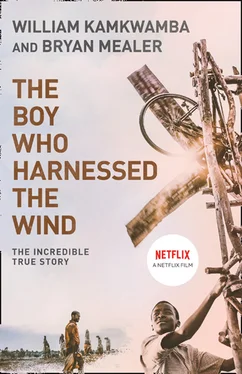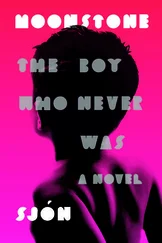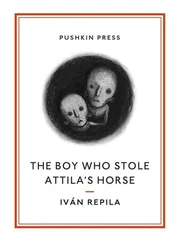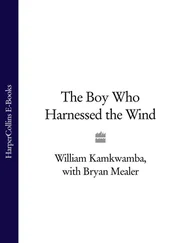Banda was a tough man. He demanded that every trader in Malawi hang his picture in his shop, and no other photo could dare hang higher. If you didn’t have the image of our Dear President on the wall—dressed in his three-piece suit and clutching a flywhisk—you would pay a hefty price. It was a frightening and confusing period in our history. Banda also forbade women to wear pants or dresses above the knee. For men, having long hair would get you tossed in jail. Kissing in public was also forbidden, as were films where kissing was portrayed. The president hated kissing, and even today, people are scared of smooching in the open. On top of that, policemen and the Young Pioneers—Banda’s personal thugs—were always snatching up people who dared criticize his policies. Many Malawians were jailed, tortured, and even tossed into pits of hungry crocodiles.
Despite all of this, it was an exciting time to be a trader. My father tells stories about hitchhiking in pickups across the countryside to Lake Malawi, where he bought bundles of dried fish, rice, and used clothing, to sell back in the Dowa market. Lake Malawi is one of the biggest in the world and nearly covers the entire eastern half of our country. It’s so vast it has waves like an ocean. I was twenty years old before I ever saw this lake with my own eyes, despite having grown up only two hours from its shores. But once I stood on its banks and looked out across its endless-looking water, my heart was filled with a great love for my country.
Once at the lake, the traders would travel to the cities of Nkhotakota and Mangochi aboard the steamer ships Ilala and Chauncy Maples , where good food was served, and traders drank and danced on the decks through the voyage. At the lake my father bartered with the Muslim businessmen, known as the Yao, who populate that part of the country.
The Yao arrived in Malawi more than a hundred years ago from across the lake in Mozambique. The Arabs from Zanzibar convinced them to become Muslim, then recruited them to capture our Chewa people and put us into bondage. They raided our villages, killed our men, then sent our women and children across the lake in boats. Once there, the slaves were shackled by the neck and made to march across Tanzania. This took three months. Once they reached the ocean, most of them were dead. Later on, the Yao captured and traded us to the Portuguese in exchange for guns, gold, and salt.
If it weren’t for the great Scottish missionary David Livingstone, the Yao and Chewa might still be at odds today. Livingstone helped end slav-ery, opened Malawi to trade, and built good schools and missions. Young men became educated and earned money, and once these economic opportunities were available to all, our two tribes had little reason to fight. Today we consider the Yao our brothers and sisters. My mother herself is a Yao, and I am half Yao.
My father has told me many stories about the small town of Mangochi, located on the southern tip of the lake, just near the mouth of the Shire River. The way he describes this place makes it sound like the great bazaars of northern Africa I’ve read about in books. The streets were filled with traders from all over Malawi, Zambia, Tanzania, and Mozambique, all their different languages and songs mixing with the smell of sweating bodies, spices, fried fish, and roasted maize. Pocketfuls of money were quickly emptied in the boozing dens, and by professional ladies of the night, who lured traders into their rooms for hot baths, expensive food, and other pleasures I didn’t understand until I was older. Often, traders got carried away in such places and ran out of money. My father remembers seeing men running away with nothing but their underpants.
Many of these same traders also had wives and children back home, in addition to the prostitutes. This was well before my father met my mother, back when he was young and too busy traveling to be tied down with a woman or family. He had a few girlfriends, sure, but he generally stayed away from the bar girls. And because of his reluctance to do this, the people in the market started calling him the Pope.
“ Eh, Papa ,” they’d tease, using the Chichewa word. “What happened? Did you fall off the pawpaw tree and break your testicles? Don’t listen to your mother—these girls don’t really burn!”
My father endured this teasing, because what else could he do? And after a while, that name caught on with so many people that hardly anyone remembered where it came from.
MY FATHER WAS A giant man, but his tolerance for alcohol was even greater. One night he and his friends settled down in the Dowa General Grocery at 5:00 p.m. As my father tells it, he drank fifty-six bottles of Carlsberg beer, and at 2:00 a.m. walked home to tell the story. These drinking sessions sometimes led to fistfights, which my father welcomed like sport.
After a while, he became one of the most famous traders around, but not just for his cleverness in business, or his ability to drink crates of beer. My father was legendary for his strength. In Malawi we like to say, “One head cannot lift up the roof.” Well, my father must not have been listening.
Every July 6, we Malawians celebrate our independence from England, much like our brothers and sisters do in America on July 4. And like in the United States, the way we celebrate is with great parties filled with lots of music, dancing, and delicious grilled meats. It was on such a holiday that Robert Fumulani, the holy father of Malawian reggae music, came to sing at Dowa District Hall, and my father—then twenty-two years old—was determined to go.
Robert Fumulani was my father’s most favorite singer. Fumulani’s songs often described the struggles of the poor, his lyrics straight from the warm red Malawian soil. My father had seen Fumulani perform many times already, in Kasungu, Lilongwe, Nkhotakota, and Ntchisi, and each time, the singer wore his signature white shirt that made him look sharp.
Well, if you can imagine, the line to see Fumulani on Independence Day began forming early, right around the time my father stepped up to the bar at General Grocery. Hours passed, and by the time he stumbled outside, the beautiful sounds of Fumulani’s voice could be heard all over town. The concert had begun.
My father rushed over to the hall, where he found a line still waiting to get inside. If you’ve ever stood with us Africans at airports or bus depots, you know we’re never good with lines. What if we miss something? So wasting no time, my father pushed his way to the front, but was stopped at the door by a policeman.
“The concert is full,” the policeman announced. “No one else allowed inside.”
My father presented his ticket, but the policeman still refused. Being a bit drunk and bold, my father pushed the policeman aside and quickly mixed into the crowd. Once there, he discovered what a great party it was! There onstage was Robert Fumulani and his Likhubula River Dance Band, with the singer dressed in his smart white shirt and his guitar strapped to his neck. In the back, workers tended to giant barbecue and kanyenya stands loaded with delicious goat and beef. And of course, there was lots of Carlsberg.
Overcome with excitement, my father squeezed through the mob of sweaty bodies until he reached the front. Fumulani was singing one of his most beloved songs, “Sister,” about his estranged wife.
“Lady,” he sang, “don’t insult me today just because I’m poor. You don’t know what my future holds…”
As if hypnotized by this wonderful music, my father began to dance. But he wasn’t doing just any dance—he was a man possessed , a man who knows in his heart that he is the greatest dancer on earth. His arms and legs became as graceful as a gazelle’s, and his giant body sprang in the air like a flying grasshopper. Oh, what moves! But when he opened his eyes, he realized the music had stopped. Everyone on the floor now stood in silence. Robert Fumulani, the blessed father of our national music, stared down, looking angry.
Читать дальше












